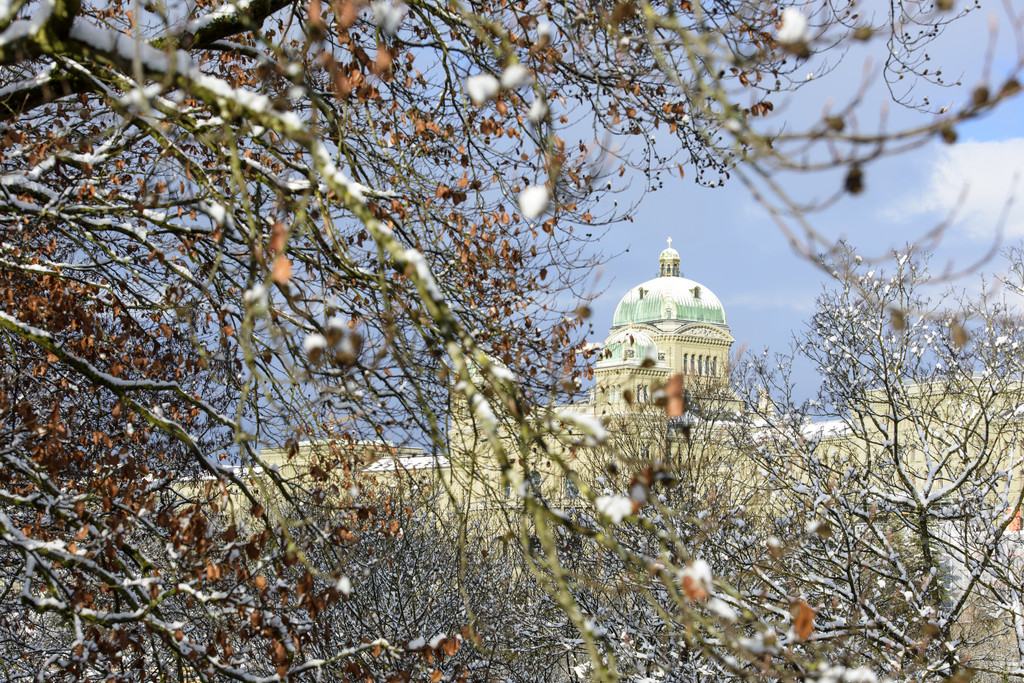![[Translate to English:]](/fileadmin/_processed_/0/d/csm_EDA-Hinweis_Mailbox-Karlsruhe-DE_Prometheus_Unsplash_39f6ff0ecc.jpg)
Please note
![[Translate to English:]](/fileadmin/_processed_/0/d/csm_online_Revue_2502_EDA-Abstimmung_c92f583a2c.jpg)
Votes and Elections

Marianne Jenni | “The Swiss Abroad are important for Switzerland’s image”

Change of address Swiss Review

Votes and Elections

The Federal Audit Office – driving efficiency and transparency since 1877

Please note


Switzerland and Liechtenstein already enjoy excellent bilateral relations. An additional treaty allowing Switzerland to represent Liechtenstein’s consular interests will now cement these relations further.
Switzerland and the Principality of Liechtenstein have a lot in common. They are separated by a 41.3-kilometre border but have operated in the same economic area, or customs union, since 1924. Over 100 treaties in force currently reflect the many values that unite these congenial neighbours. The 3,758 Swiss living in Liechtenstein and the 1,713 Liechtenstein nationals living in Switzerland (in 2020) are further proof of the close ties shared by the two countries.
Since 2000, Switzerland has appointed an ambassador for Liechtenstein, with residence in Berne. Apart from the embassy that it opened in Berne in 1919, Liechtenstein also has diplomatic missions in Berlin, Brussels, Geneva, New York, Strasbourg, Washington and Vienna. On the basis of a treaty dating back to 1919, Switzerland represents Liechtenstein in countries where Liechtenstein does not have its own embassy. In 2021, 913 Liechtenstein nationals were registered with Swiss representations.
Under the 1919 treaty, Swiss representations accept Liechtenstein passport applications, authenticate and submit certificates of marital status, and assist Liechtenstein nationals in various emergency situations. As agreed, these consular services are also provided within the parameters of the Swiss Abroad Act.
Switzerland also represents Liechtenstein’s interests in relation to visas. Based on a framework agreement that came into force on 19 December 2011, Berne issues visas on behalf of its neighbour for short-term residence (1,352 Schengen visas in 2019) and long-term residence (116 national visas; 1,468 visas in total). An additional treaty, which came into force on 1 May 2022, now also governs consular representation of Liechtenstein by Switzerland in the US, Belgium, Germany, the Czech Republic and, to a limited extent, Austria, i.e. in countries where Liechtenstein has its own representation but no department dedicated to consular matters. Liechtenstein nationals can therefore rely on every Swiss representation abroad to provide them with consular services.
Occupying 160 square kilometres of land, Liechtenstein is Europe’s fourth-smallest and the world’s six-smallest country. Liechtenstein is a constitutional hereditary monarchy based on democratic and parliamentary principles. Its head of state is HSH Prince Hans-Adam II of Liechtenstein, who also bears the titles Duke of Troppau and Jägerndorf, and Count of Rietberg. In 2004, Hans-Adam II handed over the duties of head of state to his oldest son, HSH Hereditary Prince Alois. Four political parties are represented in the parliament of Liechtenstein, the Landtag. Liechtenstein is a landlocked country with no port, airport or motorway. It disbanded its army in 1868. However, every man fit to bear arms is required, until the completion of his 60th year, to serve in the defence of the country in the event of emergency. Of Liechtenstein’s 39,055 inhabitants in 2020, 13,467 were not Liechtenstein nationals. Over half of the country’s 40,328 employed people in the same year were cross-border workers (22,511), of whom 58 per cent live in Switzerland. Some 40 per cent of people living in Liechtenstein belong to a sports club. To date, this has translated into ten Olympic medals, all of them in alpine skiing. Liechtenstein has a rich culture. It has five restaurants listed in the influential Gault Millau restaurant guide, it issues its own postage stamps, and it boasts the “Princely Collections” which date back 400 years and have 1,700 paintings. Liechtenstein also has excellent international ties. It has been a member of the UN since 18 September 1990, it joined the European Economic Area (EEA) on 1 May 1995, and its customs union treaty with Switzerland has been in force for 99 years. Liechtenstein is a Schengen-associated country. It has been implementing the Schengen Agreement since 2011.
The new 2022 treaty will provide even greater impetus and enrichment to what is already a well-established partnership.
On the basis of three treaties, Switzerland has been representing Liechtenstein’s consular interests since 1919 and also issues visas on behalf of its neighbour. Consular statistics in 2019: 913 registered Liechtenstein nationals; 57 Liechtenstein passport applications; assistance to Liechtenstein nationals in emergency situations; 1,352 Schengen visas; 116 visas for long-term residence.
1919 Exchange of notes between Switzerland and Liechtenstein in countries where Liechtenstein does not have its own embassy.
2011 Framework agreement on cooperation related to visa procedures, entry and residence, and on police cooperation in the border area.
2022 Exchange of notes between Switzerland and Liechtenstein on consular representation of Liechtenstein in Germany, the US, Belgium, the Czech Republic and, to a limited extent, Austria.
Comments